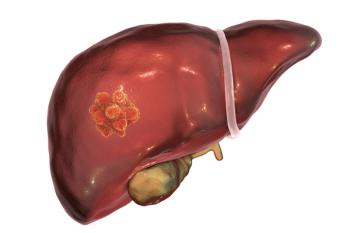
DFS rates at 2 years were improved with cemiplimab plus SBRT vs cemiplimab alone in patients with resectable hepatocellular carcinoma.

Your AI-Trained Oncology Knowledge Connection!


DFS rates at 2 years were improved with cemiplimab plus SBRT vs cemiplimab alone in patients with resectable hepatocellular carcinoma.

At 1 and 2 years, the progression-free survival rates were higher with nivolumab plus ipilimumab vs pembrolizumab in patients with cutaneous melanoma.

Findings from 2 studies showed that onetime cell therapies can elicit complete tumor regression in patients with advanced epithelial cancers.

Phase 2 data show consistent overall immunotherapy immunogenicity with ELI-002 7P in those with KRAS-mutated pancreatic ductal adenocarcinoma.

A median OS of 22.9 months was observed with mecbotamab vedotin plus nivolumab in patients with soft tissue sarcoma.

Three patients treated at the first dose level of BAFF CAR-T cells experienced minimal adverse effects in a phase 1 study.

Treatment with THIO/cemiplimab was generally well-tolerated among patients with advanced NSCLC in the phase 2 THIO-101 study.

Patients with newly diagnosed glioblastoma had improved survival when treated with TTFields plus temozolomide and pembrolizumab.

Glycan editing of cell surface glycans with E-602 may represent a novel therapeutic approach among patients with cancer.

Phase 1 data support further assessment of DK210 (EGFR) in solid tumors such as renal cell carcinoma and non–small cell lung cancer.

Detection of S15 and PD-L1 proteins in more than half of NSCLC samples support the potential to target both pathways during treatment.

Phase 1 data highlight a manageable safety profile with IMA203 among patients with melanoma and other PRAME-positive solid tumors.

Updated OS findings from the PERLA trial showed continued success with dostarlimab plus chemotherapy in patients with advanced non–small cell lung cancer.

Patients with melanoma, head and neck squamous cell carcinoma, and cervical cancer who had not previously received immunotherapy and were treated with lifileucel plus pembrolizumab experienced promising overall response rates compared favorably with historical data on pembrolizumab monotherapy.
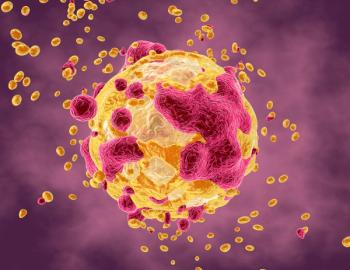
A study presented at The Society for Immunotherapy of Cancer’s (SITC) 35th Anniversary Annual Meeting suggested that ipilimumab (Yervoy) plus nivolumab (Opdivo) for patients with metastatic or unresectable angiosarcoma was well-tolerated.

“The data reported, in addition to its ease of use, demonstrate the potential of [tavokinogene telseplasmid] in combination with pembrolizumab as a next-generation intratumoral IL-12 therapy that can induce regression of both locally treated and untreated distant and visceral lesions,” said Paolo A. Ascierto, MD.
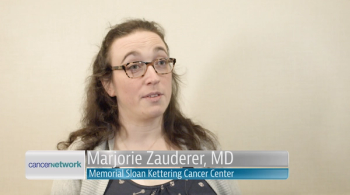
Marjorie Zauderer, MD, from Memorial Sloan Kettering Cancer Center, discussed new immunotherapy approaches at the 34th Annual Meeting & Pre-Conference Programs of the Society for Immunotherapy of Cancer (SITC 2019).
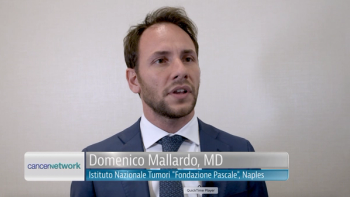
Domenico Mallardo, MD, Istituto Nazionale Tumori "Fondazione Pascale" in Naples, discusses results from his trial – designed to evaluate anti-CTLA4 agents in patients with melanoma who relapsed on treatment with ipilimumab (Yervoy), which was presented at the 34th Annual Meeting & Pre-Conference Programs of the Society for Immunotherapy of Cancer (SITC 2019).
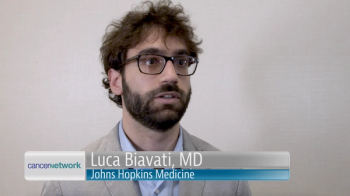
Luca Biavati, MD, from Johns Hopkins Medicine, discussed bone marrow T-cells and bone marrow infiltrating lymphocytes as a source for adoptive cell therapy at the 34th Annual Meeting & Pre-Conference Programs of the Society for Immunotherapy of Cancer (SITC 2019).
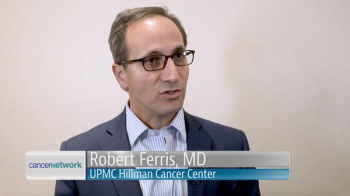
Robert Ferris, MD, from UPMC Hillman Cancer Center, discusses the 34th Annual Meeting & Pre-Conference Programs of the Society for Immunotherapy of Cancer (SITC 2019), and how immunotherapy will continue to transform cancer treatment.
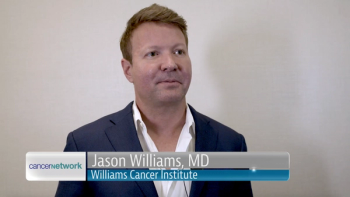
Jason Williams, MD, discusses the development of intratumoral immunotherapy, as well as trial results from his poster presentation at the 34th Annual Meeting & Pre-Conference Programs of the Society for Immunotherapy of Cancer (SITC 2019).
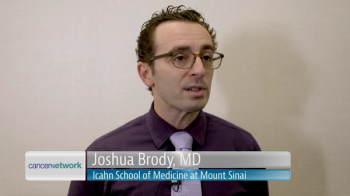
Joshua Brody, MD, discusses the gratification of the crossover between medicine and science at the 34th Annual Meeting & Pre-Conference Programs of the Society for Immunotherapy of Cancer (SITC 2019).
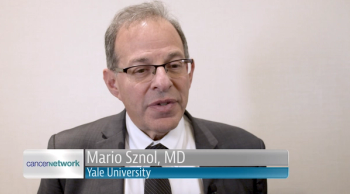
Mario Sznol, MD, from Yale University, discusses where the field of immune-oncology will be 1 and 5 years from now at the 34th Annual Meeting & Pre-Conference Programs of the Society for Immunotherapy of Cancer (SITC 2019).
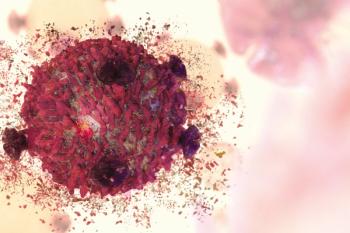
The increasing utilization of these immune checkpoint inhibitors has presented new of immune-related adverse events that have proven to be extremely challenging to manage.
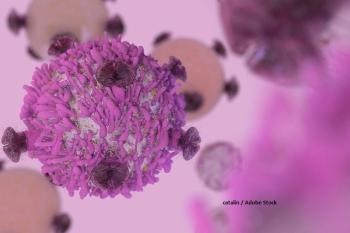
A trial showed that tumor mutational burden may be effective as a biomarker in patients treated with immunotherapy.

Researchers studied the combination of a cellular vaccine known as HS-110 and nivolumab in an early-phase trial of patients with advanced non–small-cell lung cancer.

The recommendations on Trial Reporting in Immuno-Oncology aim to enchance understanding of efficacy and toxicity outcomes in immuno-oncology trials.